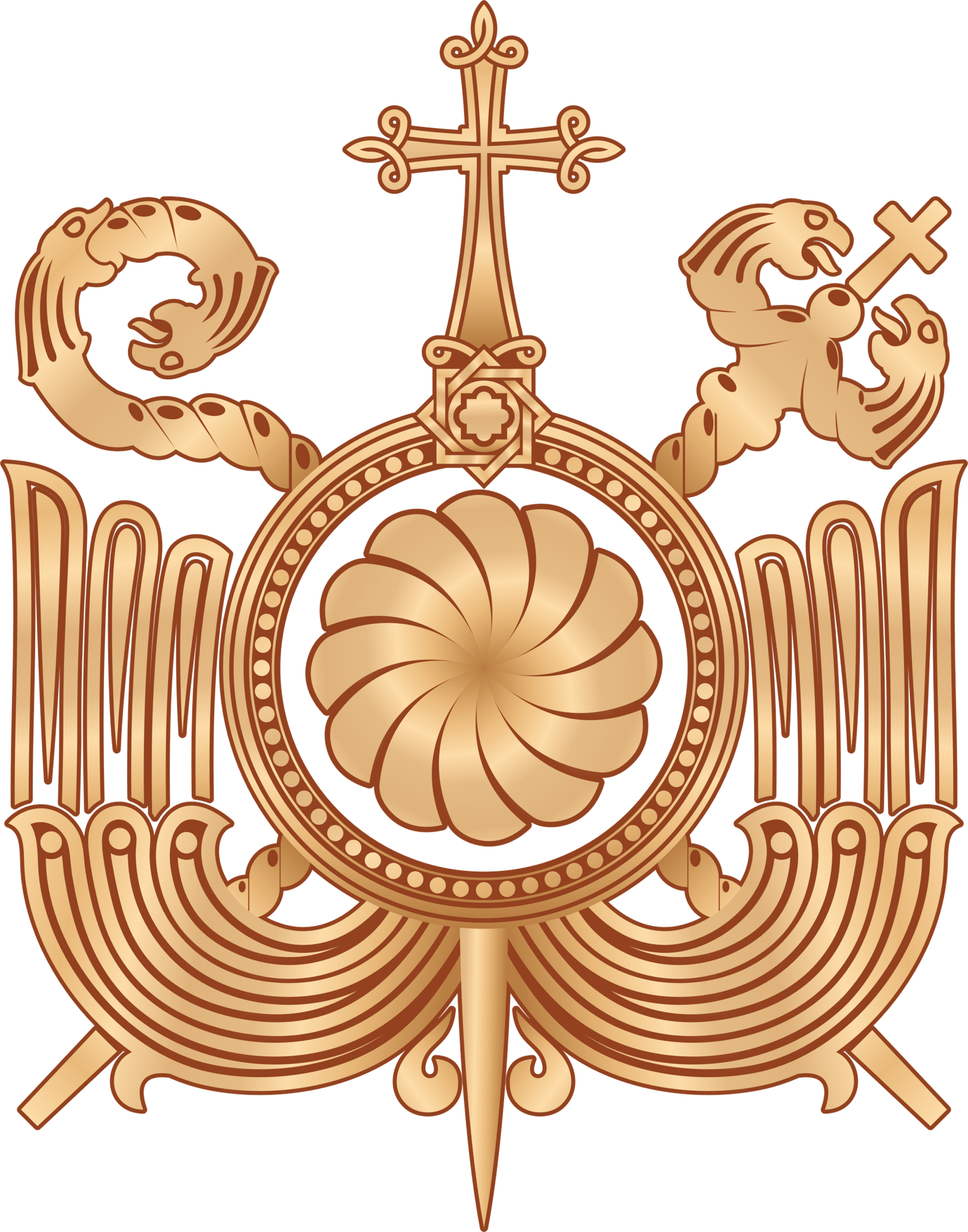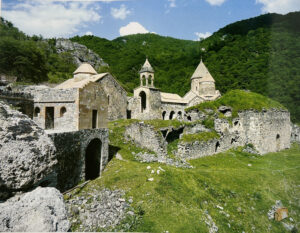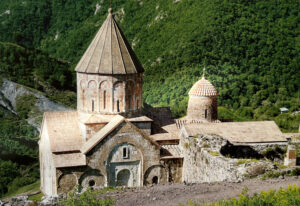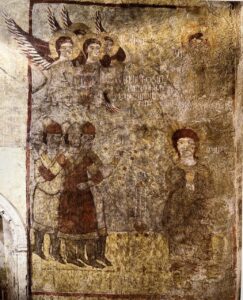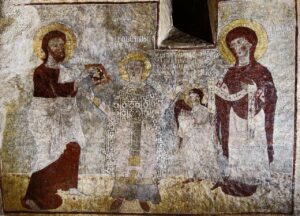Foreign literature confirming the Armenian origin of Dadivank
The inscriptions preserved on the walls of the monastery and ancient khachkars on the territory of the monastery testify to the antiquity and Armenian origin of Dadivank. There is historical information and evidence of the construction of the monastery in various foreign literature and professional works.
The Orthodox Encyclopedia, published with the blessing and under the editorship of the Patriarch Kirill of the Church of Moscow and All Rus', presents the construction of Dadivank, the origin of the name: an Armenian shrine that has been attacked and destroyed for centuries, but stands firmly in place. The paper presents in detail the historical facts and descriptions of the buildings of the monastery complex.
In 2014, with the joint efforts of the architect Ara Zaryan and the restorer Christine Lamure from Italy, the process of restoration of the Dadivank frescoes began, which continued until 2017. The experts presented the details of the work done in their book "Conservative Restoration of the Frescoes of 1297 in St. Katoghike church, built in 1214". The book begins with the history and description of Dadivank, followed by the results and discovering of the work done by specialists. As a result of the extensive work of specialists, the historical scenes of the frescoes inside the church of St. Katoghike and the exact year of the frescoes - 1297 were finally clarified, as evidenced by the three-line Armenian fresco inscription placed in the lower part of the window of the southern wall of the church: ՉԽԶ (Չ=700; Խ=40; Զ=6 means: 746+551=1297).
Specialists cleaned and restored the frescoes on the northern and southern walls of the church, which depict the episode of St. Nicholas the Wonderworker offering patriarchal power and the scene of the stoning of the archdeacon of St. Stephen. As a result of the restoration of the frescoes, a number of Armenian inscriptions appeared with descriptions of the scenes.
